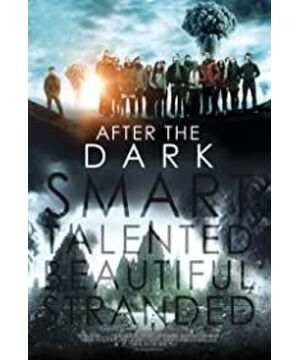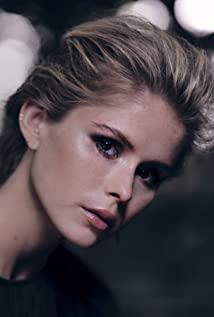If it were the end of the world now, all parts of the world would be destroyed. Now, there is a Noah's ark in front of all human beings, but its carrying capacity is limited. Who would you choose to board the ark? ? ?
Similar experiments were carried out during the Nazi era in order to breed so-called cultivators.
However, in the film, the heroine criticizes such so-called selection and breeding. Will such a choice really make our future more sustainable? If we can't even save our present love and humanity, what future do we need.
In the third experiment, ten people came out a year later and found that the world was not destroyed, and their island alone was not destroyed. However, they abandoned the best group of people, that is, the most basic people who can really help to survive (food, clothing, etc.). The rest are individuals who are a group of artists (poets, musicians, dancers), and at this point, they choose to die.
In fact, these three experiments are meaningful.
The first and second experiments were the most choices made by the students under the guidance of the philosophy teacher.
Human beings at this time are just surviving and just reproducing. All bear the mission of human continuation. However, what is the difference between this kind of life and the human ancestors thousands of years ago? To reproduce to reproduce, to survive to survive. At this time, we have no aesthetics, no philosophy, no art, all cultures, all elements with unique human attributes have disappeared. Are humans still human? ? ? What is the difference between humans and animals? ? ? Besides, can animal invention culture also become human? ?
Obviously, philosophers think the same way, so the results of the two experiments are not very good. The first is that people lose the real code of survival after abandoning the philosophers. There is no pathos and despair of the life of a philosopher. The second is that there is no other entertainment, and people have only one function of reproduction. For the sake of limited resources (reproduction), the civil strife caused by human selfishness will eventually lead to the destruction of human beings.
The third experiment was designed by the students themselves, and the people who entered the safe area were all artists.
Originally, this kind of life was very good. People sang and danced every day. It looks good and perfect, but why does it end up going to ruin?
In Marx's words, it means that people lose the material basis for survival, and the suspended art will not last long. A year, for history, is a short-lived joy that leaves no mark at all, not to mention that such a short period of time leads mankind to destruction. Thinking about it again, everyone at this time seems to be no different from the ordinary self-entertainment on weekdays. Apart from being happy, what else is left? Even the original art is gone. Is there any creation? Artists without material foundations are just entertaining themselves, and no more brilliant art will be born.
Human destruction.
So, is this a film that advocates class equality? Is there any logic here?
What I see is more about what occupation, status, class, skills, character, etc. bring to human beings. How should knowledge such as art and philosophy be compatible with basic disciplines, and how should disciplines be hegemonic? As the saying goes, "philosophy is to reality what masturbation is to sex."
View more about After the Dark reviews











